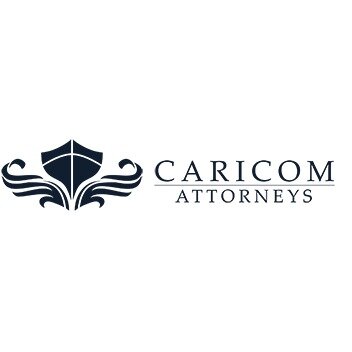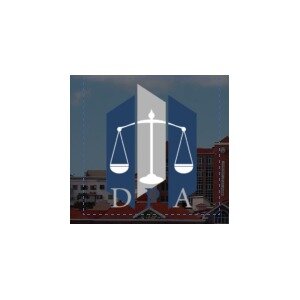Best Energy Regulatory Law Lawyers in St. George's
Share your needs with us, get contacted by law firms.
Free. Takes 2 min.
List of the best lawyers in St. George's, Grenada
About Energy Regulatory Law in St. George's, Grenada
Energy Regulatory Law in St. George's, Grenada, is a legal field that governs the generation, distribution, supply, and consumption of energy within the city and, more broadly, across the country. This area of law regulates the operations of public and private entities engaged in electricity and renewable energy projects. The legislation also ensures that market participants operate within frameworks that promote efficiency, safety, reliability, and environmental sustainability.
The key focus areas include licensing, tariffs, consumer protection, environmental compliance, and monitoring of industry standards. Given Grenada’s commitment to transitioning towards greater use of renewable energy and improving energy infrastructure, the legal environment is adapting to accommodate new technologies and business models.
Why You May Need a Lawyer
Seeking assistance from a lawyer experienced in Energy Regulatory Law can be crucial in several situations:
- Understanding compliance requirements for businesses wishing to generate, distribute, or supply energy.
- Negotiating and drafting contracts for energy projects, including power purchase agreements and joint ventures.
- Handling disputes between consumers and energy suppliers, especially regarding billing, service interruptions, or contract enforcement.
- Assisting with licensing applications or representing clients before the relevant regulatory authorities.
- Advising investors on the legal frameworks for renewable energy and infrastructure investments.
- Navigating environmental impact assessments and ensuring compliance with sustainable energy policies.
- Staying up to date with evolving legislation relevant to new energy technologies and market participants.
Local Laws Overview
Grenada’s energy sector is primarily regulated under the Electricity Supply Act and overseen by the national regulatory body, the Public Utilities Regulatory Commission (PURC). The legal landscape is shaped by the following key aspects:
- Licensing: Energy providers must obtain licenses before beginning operations. These licenses are issued based on compliance with technical, economic, and environmental criteria.
- Tariff Setting: The process for determining electricity rates is regulated to ensure fairness for both consumers and investors, taking into account operational costs and sustainable growth.
- Grid Access: Rules exist to govern access to electricity grids, especially for small-scale and renewable energy producers seeking to supply power.
- Consumer Protection: Legislated safeguards ensure that consumers receive reliable service and mechanisms for addressing grievances.
- Renewable Energy: Special provisions support the development of solar, wind, and other renewables as part of Grenada's commitment to reducing fossil fuel reliance.
- Environmental Compliance: Energy participants must meet environmental standards and often need to conduct environmental impact assessments.
- Dispute Resolution: Formal procedures exist for settling disputes among industry participants and between consumers and providers.
Frequently Asked Questions
What entities regulate the energy sector in St. George's, Grenada?
The main regulatory body is the Public Utilities Regulatory Commission (PURC), which oversees licensing, rate setting, and adherence to quality standards. The Ministry of Energy also plays a policy-setting role.
Do I need a license to generate and sell electricity?
Yes, anyone wishing to generate and sell electricity, whether from conventional or renewable sources, must obtain the appropriate licenses from the PURC.
Are there incentives for renewable energy projects?
Grenada offers incentives such as tax breaks and reduced duties for certain renewable energy technologies to encourage investment in solar, wind, and other sustainable sources.
What rights do consumers have regarding energy services?
Consumers have the right to reliable electricity service, transparent billing, and access to redress mechanisms in case of disputes with energy suppliers.
How are electricity rates determined?
Electricity rates are established by the PURC based on the costs of supply, maintenance of the grid, and considerations for fair return on investments while protecting consumers.
What is net metering and is it available?
Net metering allows consumers to generate their own electricity and feed excess power back into the grid, receiving credits toward their energy bills. This system is available for approved installations.
How can I resolve a dispute with my energy provider?
First, seek resolution directly with your provider. If unresolved, you may escalate the issue to the PURC, which offers formal dispute resolution services.
What happens if I operate an energy business without proper licensing?
Operating without the necessary licenses is a legal violation and can result in penalties, fines, and orders to cease operations.
Are there environmental requirements for energy projects?
Yes, most energy projects must comply with environmental standards and are often subject to environmental impact assessments as part of the permitting process.
Can foreign investors participate in Grenada’s energy sector?
Foreign investors are welcome, especially in renewable energy projects, but must comply with all licensing, tax, and regulatory requirements set by local authorities.
Additional Resources
- Public Utilities Regulatory Commission (PURC): The main regulatory agency for energy services in Grenada.
- Ministry of Energy: Responsible for policy development, renewable energy initiatives, and overall energy sector strategy.
- Grenada Electricity Services Ltd (GRENLEC): The primary electric utility provider and a useful source of practical information for consumers.
- Environmental Management Authority: Oversees environmental compliance, including the assessment of energy projects.
- Local Law Firms: Many law firms in St. George’s have specialists in energy and environmental law who can offer targeted legal advice.
Next Steps
If you require legal assistance with an energy regulatory matter in St. George’s, Grenada, consider the following steps:
- Gather relevant documents such as contracts, licenses, correspondence, and any notices from regulators or service providers.
- Identify your specific legal issue, whether it involves compliance, disputes, licensing, or investment opportunities.
- Reach out to a qualified lawyer or law firm that specializes in energy regulatory matters in Grenada for an initial consultation.
- Be prepared to discuss your goals, concerns, and the facts of your situation in detail with your legal advisor.
- Ask about the process, likely timelines, and costs associated with your case so you can make informed decisions.
- Consider contacting the PURC or Ministry of Energy for general guidance or to verify information before proceeding.
Having the right legal support ensures compliance with all applicable energy regulations, protects your interests, and helps navigate what can be a complex and evolving legal environment.
Lawzana helps you find the best lawyers and law firms in St. George's through a curated and pre-screened list of qualified legal professionals. Our platform offers rankings and detailed profiles of attorneys and law firms, allowing you to compare based on practice areas, including Energy Regulatory Law, experience, and client feedback.
Each profile includes a description of the firm's areas of practice, client reviews, team members and partners, year of establishment, spoken languages, office locations, contact information, social media presence, and any published articles or resources. Most firms on our platform speak English and are experienced in both local and international legal matters.
Get a quote from top-rated law firms in St. George's, Grenada — quickly, securely, and without unnecessary hassle.
Disclaimer:
The information provided on this page is for general informational purposes only and does not constitute legal advice. While we strive to ensure the accuracy and relevance of the content, legal information may change over time, and interpretations of the law can vary. You should always consult with a qualified legal professional for advice specific to your situation.
We disclaim all liability for actions taken or not taken based on the content of this page. If you believe any information is incorrect or outdated, please contact us, and we will review and update it where appropriate.












